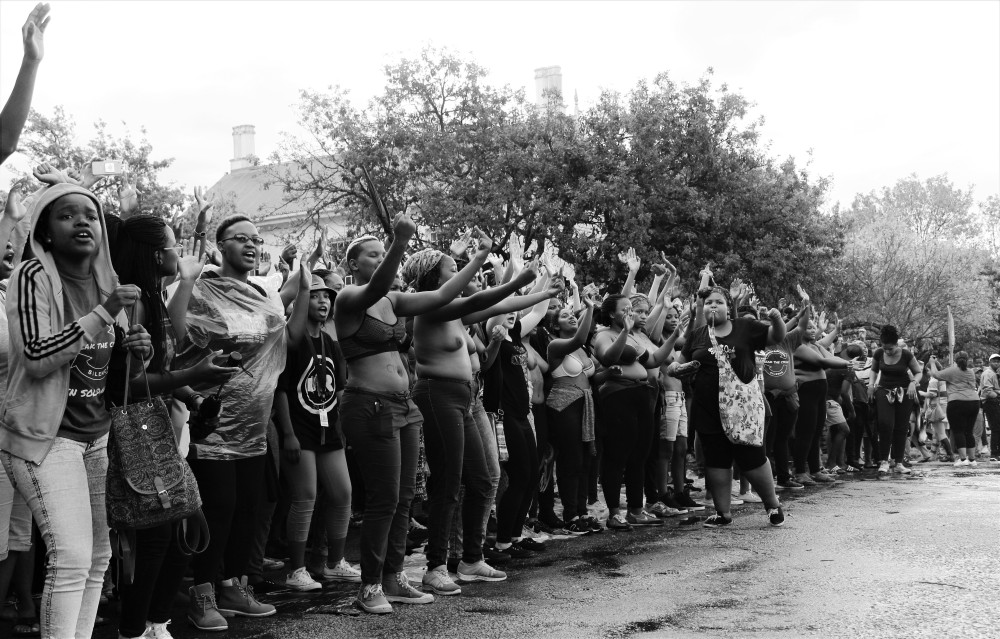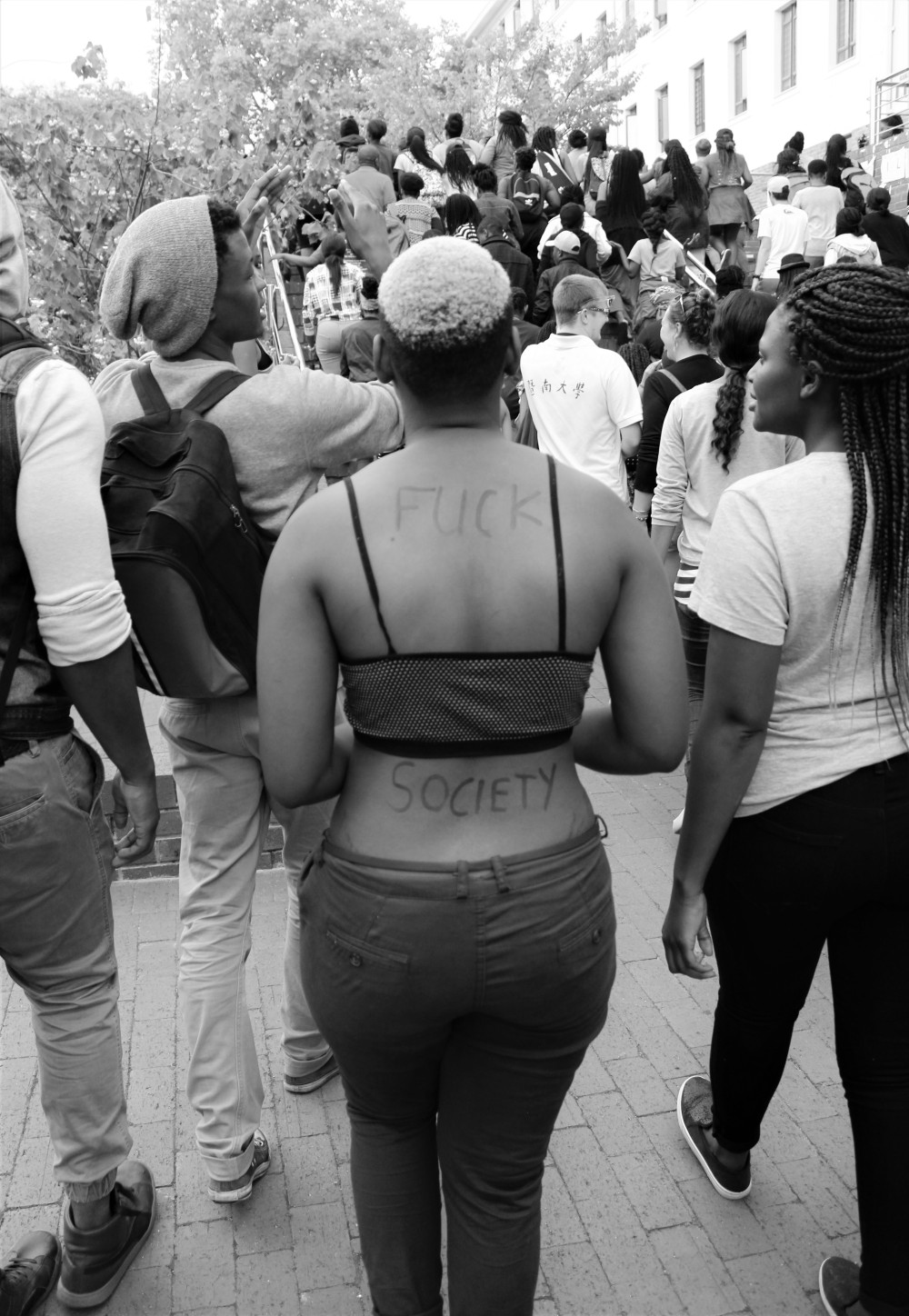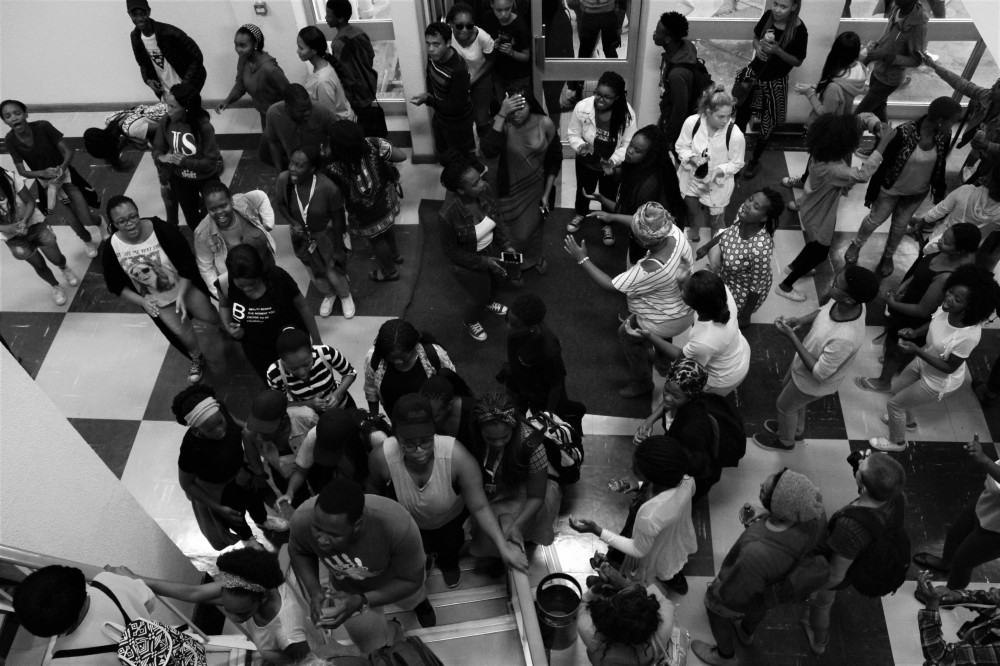In the darkness of Monday morning students gathered outside Rhodes University residences to remind everyone of this denied fact: sexual abuse still occurs within these walls. The students sang and shouted their protest against the fact that rapists still walk among us, still breathe our air and still pollute our world with their implicit understanding that some lives – some bodies – matter more than others.

Whether or not you can align yourself with the specific demands or views of the RUReferenceList movement, the movement does highlight the important notion that sometimes injustices do not make a scene. Sometimes justice isn’t explicitly yanked from us, but it slips through the cracks – cracks in our thinking, cracks in our institutions, cracks in our policy, and cracks in our culture.
“The challenge of any social justice movement today is to fight an insidious, covert operation – a way of thinking, speaking and being.”
On any other random day, a guy touches a girls’ bum at Friars, a homophobic comment is said in passing at the dining hall, or the Apartheid-era phrase “blacks” is used in casual conversation. For most, these would be considered minor incidents. No-one was raped, no-one was beaten up and no-one said they hate another race. Welcome to our modern Utopia. Except that people do get raped, people do get beaten up, and people are still racist.
A key challenge in the counterculture movements in the 1970s and the anti-Apartheid era was getting equal rights. But equal rights didn’t make the evils of society, like prejudice, go away – it just made them go underground. The challenge of any social justice movement today is to fight an insidious, covert operation- a way of thinking, speaking and being.

It is one thing to advocate a human right– it is another to personally give it to another human being. I’m tired of hearing females talk feminism by day but trash talk their and others’ bodies and actions by night, and of men who claim to respect women up to the point where they are behind doors with the boys. I’m tired of hearing, “I’m not racist but..” followed by something implicitly prejudiced, and of seeing supposedly liberal people treat poorer people like the scum of this earth.
Confronting prejudice today will likely not land us in prison. But despite the law being on our side, confronting prejudice today is not any easier. In fact, as prejudices go underground, they become more difficult to detect and control. It may not be in the law but it is in our culture. The tyranny of “political correctness” has become a mechanism for whitewashing the very things it sought to correct. And this insidiousness does not stop at prejudice.
“Everything on the surface seems better.”
Many of the greatest crises of today, like global inequality and environmental degradation, are also enabled by a kind of artificiality through the mechanism of psychological distance. We literally do not see where out shit goes: in the bin, in the toilet, and away to Neverland. The oh so logical logic of Capitalism could never be flawed. It’s not like an abstract theory is different when it actually interacts with real living things. But hey – out of sight, out of mind.
Democracies the world over have also become artificial. The facade of a procedural democracy allows democratic debate even if, really, the competition does not have a chance. “Democracies” are swept away by the capitalist imperative. They weaken, crumble and become nothing but a facade on top of an insidious oligarchy in which the elite rule.
Everything on the surface seems better. Violence has supposedly decreased substantially since the dark ages, and we are no longer dropping atomic bombs. But people hardly stop to think about the structural violence that is inflicted upon people by the global institutional order. Poverty-related factors cause one-third of all human deaths annually. But we don’t think about it, or if we do, we lament that it is not our fault. We comply with this order of things. As Rhodes University Politics lecturer Sally Matthews says: “We complain, but we comply.”
One of the biggest obstacles to justice is the gross disconnect between the actions we take in our daily lives and the views we support in the abstract. People will pay lip service to justice, but often when confronted with something problematic in their daily life they will say “Lighten up”, “Don’t take things so seriously”, “It was a just a joke.”

But the things we do not confront, whether within ourselves or in the world, do not disappear. They fester and grow, and come to the fore in more destructive ways. The greatest ills in the world are found in the small things, the small choices – which build up increment by increment. And it is only by dismantling these ills – increment by increment – in our conversations, our purchases, our daily politics, that we can hope to dismantle wider systemic ills.
“It is our duty to shed light on those things which are hidden– to bring into the open those things which are allowed to blend into the sidewalk, casting shadows on this world”
In this era in which people are acutely aware of the political nature of things, people are afraid. Some voices are stifled and de-legitimised, others go uncontested, and no-one has the courage to speak out. Some are also critical of protest action because it supposedly isn’t as effective as structural changes. But we need to understand that many of the institutions which run our world today are unjust. We cannot use the mechanisms of a system which is designed to privilege – not us, the people – but hegemonic interests. We will not find justice there.
It is our duty to shed light on those things which are hidden– to bring into the open those things which are allowed to blend into the sidewalk, casting shadows on this world. It is not good enough to wait until the Silent Protest to start talking about gender violence, or until International Week to bring the immigration crises into our consciousness. It is not enough to wait until the next Fees Must Fall to think about the gross inequality of opportunity that still exists in this country.
The time is now. The time is tonight in Friars, and tomorrow at the Kaif, in the shops on the way home and not just in your lectures, your midnight existential quandaries and in passing. The injustices of the world do not disappear because we choose not to see them. In a time where most injustices are implicit, disguised, subtle and insidious – now, more than ever, we need to wear our politics on your sleeve.